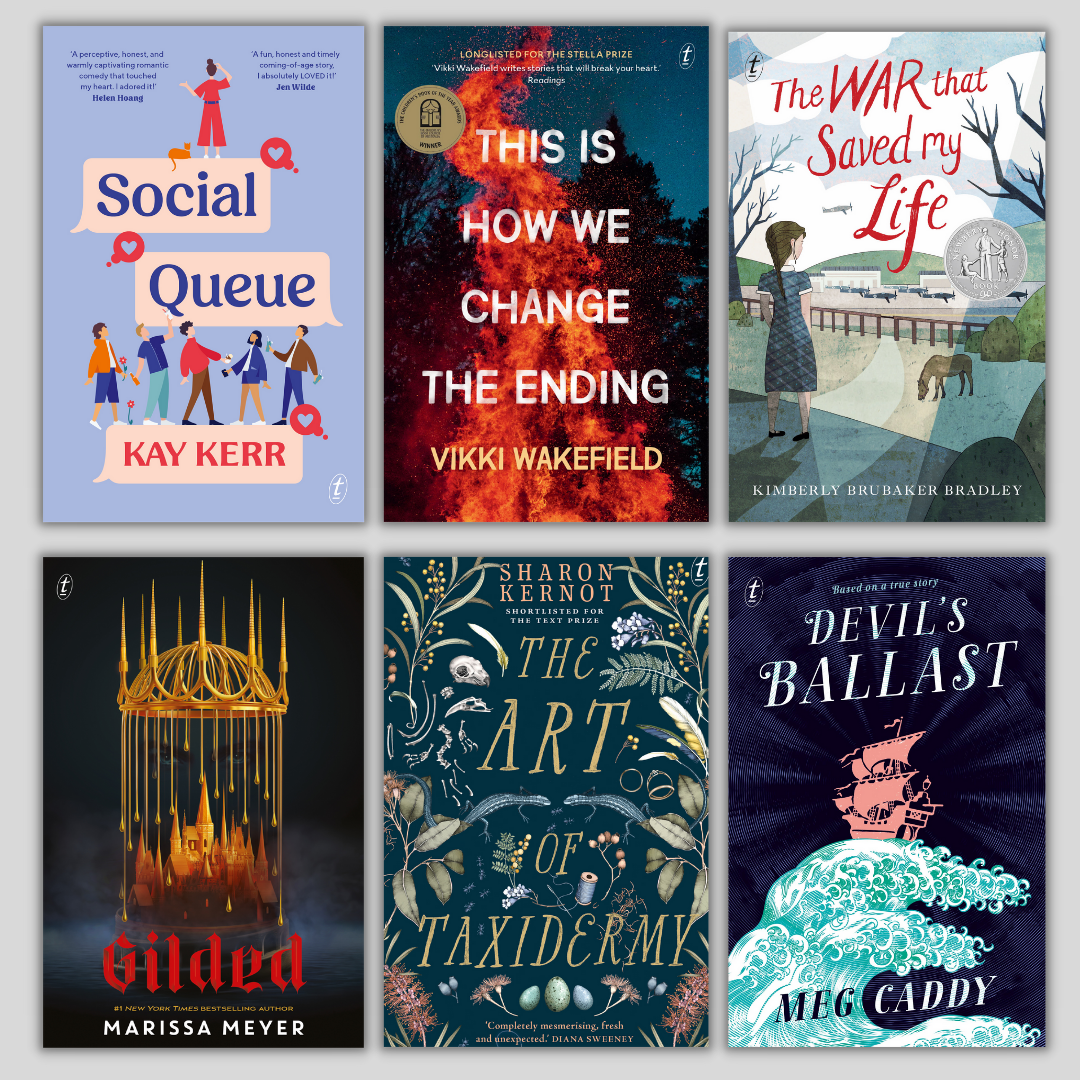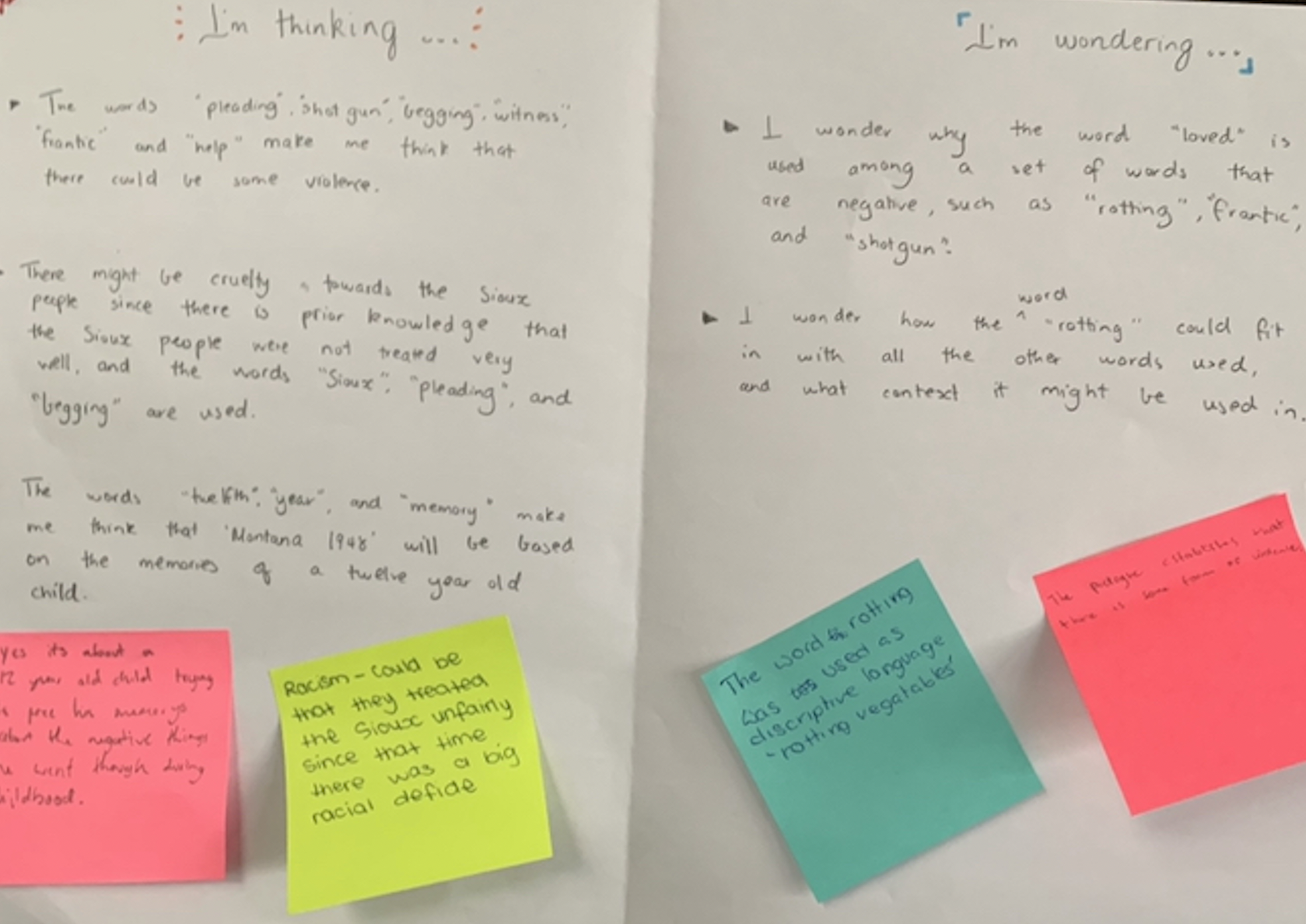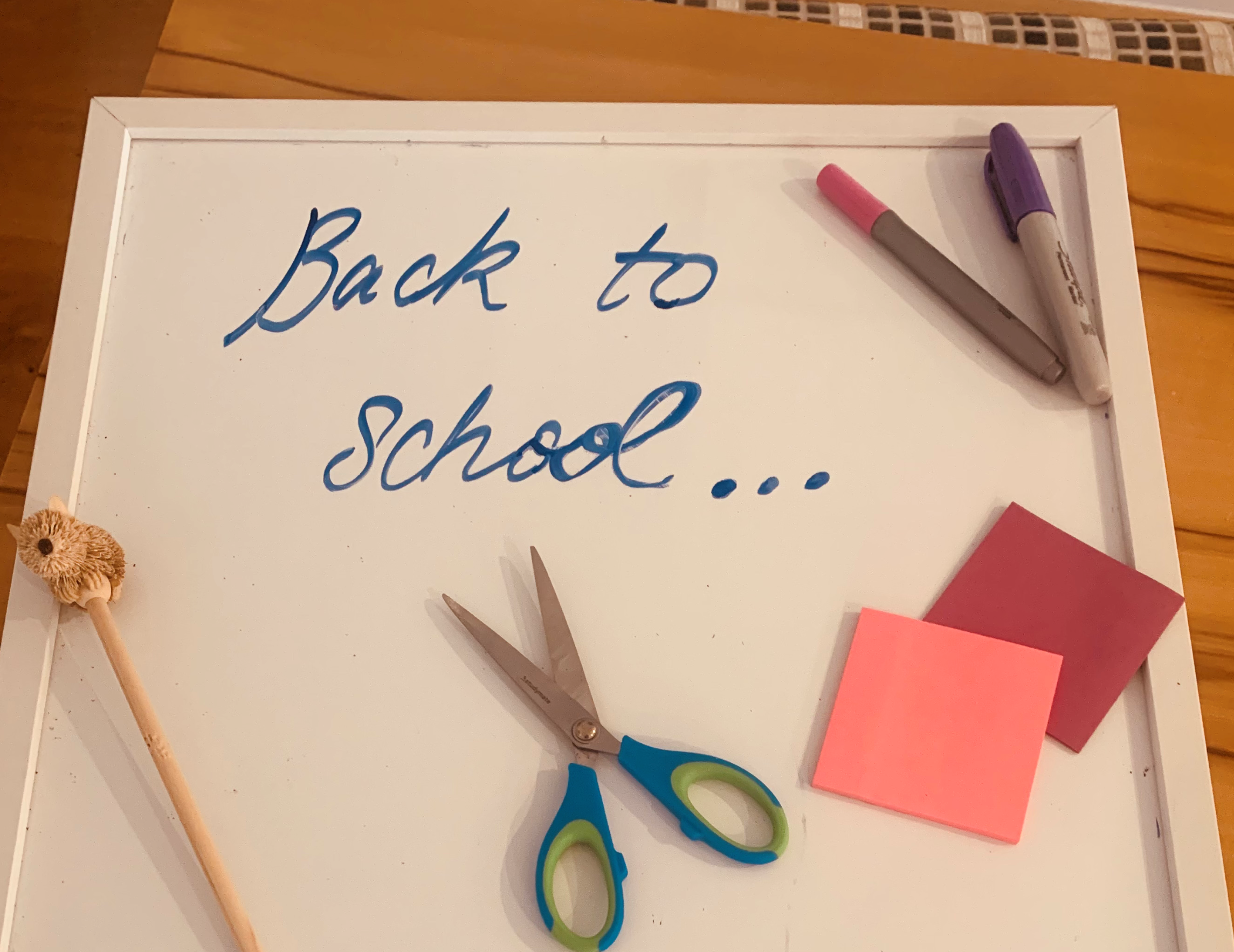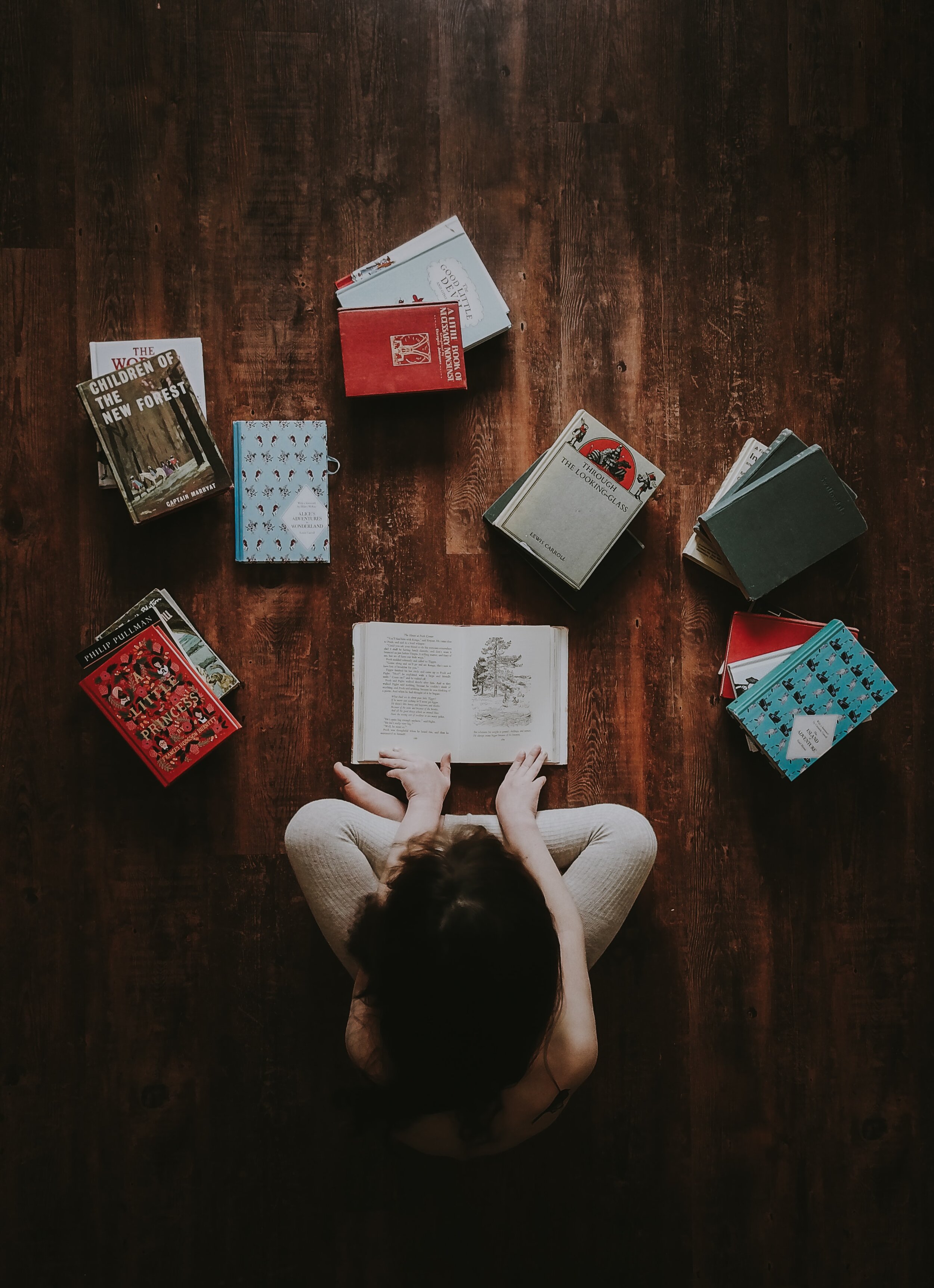Recent Posts

Connecting Books to Readers: An Interview with a Publisher
As teachers we want to foster lifelong readers in our students by unlocking the reader within them. That feeling of connecting a student with that book - as they reluctantly tell you that they ‘actually like it’ - is definitely one of the most satisfying as an English teacher. However, this seemingly simple goal can be extremely challenging when faced with students who ‘don’t like to read’ or ‘can’t find a good book.’
There are many ways for teachers to engage, and keep up-to-date, with what is happening in Young Adult fiction. Becoming more informed and aware of what stories are being published, and which writers are being published, can only aid our ability to recommend and guide students in their reading.
To help us better understand the ‘world of YA fiction’ we interviewed Senior Editor at Text Publishing, Jane Pearson. Our conversation gave us ideas on how we can connect students with books that they want to read (and we also got some great book recommendations to get us started!).

Getting to know your students as writers: 10 ways to help students find ideas to write about (and set them up for writing inspiration all year)
Finding out about who our students are, and how they write, is usually one of a teacher’s starting points.
This blog looks at how we can set up our students as writers by generating lists of writing ideas and low-stakes writing using their own lists as stimulus. These give us a meaningful ‘first glimpse’ into who our students are through their ideas and writing.
So here are ten suggested lists for generating ideas and prompts that can become possibilities for writing, and that students can come back to and develop throughout the year.

3 Books to Support the Development of a Reading Community at the start of the school year
This post gives an overview of a range of texts you can use in the classroom that can help support the development of a reading community by sparking enthusiasm for engaging with texts and reinforcing genuine reasons for reading. Enjoy!

Literacy Research Spotlight: A collation of recommendations from major adolescent literacy reports from the last 14 years
Sometimes, knowing where to start with ‘the research out there’ (as distinct from conducting our own research in our classrooms or across our schools) can be daunting. One way to begin is to read major research reviews or analyses written for practitioners about the particular topic of inquiry.
This is how we found ourselves rereading some major adolescent literacy reports, reviews and analyses from the last two decades, to see if we could find any patterns between their recommendations and suggested practices, or if we could observe any changes in these over time.
As a result, we have collated our findings in a visual matrix; outlining some information about the selected sources, along with considerations to bear in mind when viewing these tables.
Subscribe to The Literacy Village to receive a free copy of the matrix with embedded links to relevant research.

From ‘I don’t know’ to ‘I’m thinking’: Helping students respond to open-ended questions about reading when they don’t know where to start
Today’s post explores some ways in which we can be more focused and explicit when inviting students to respond to their reading, as a starting point that will launch into ‘bigger picture’ thinking.

16 Ways to use Quickwrites to promote deeper thinking and learning, no matter what subject you teach
A Quickwrite is an invitation for students to write swiftly, continuously, and without censoring themselves in response to a prompt. Check out this post to see how they can be used strategically at different points in a lesson to develop students’ thinking and to enhance learning.

Gathering meaningful evidence of students’ thinking about reading
We need to seek out multiple sources of evidence, broaden our repertoire of assessment tools, be cognizant about what we are looking for and determine what conditions, and which tools, will give us the most valid evidence and information about what students can do, what they need support with, and what they are ready to learn next.

After a short break: Four ways of activating and building knowledge at the start of a new term
It’s common to come back from the school holidays with a slight case of ‘holiday amnesia’. Just like teachers need to review where they are ‘at’ and where they are going at the start of a new term, students need a chance to ‘rehearse’ what they already know in meaningful ways and connect it to the new. This post will explore four ways in which we can approach this when we go back to school next week.

‘I actually enjoyed it, Miss’: Setting up for a successful class novel experience
How can we plan for success in a class novel study before we turn to that first page with our students?
Ask someone what books they studied in school and they are likely to not only tell you what they were, but also what they thought of them, or even if they actually read them. If we take this back to our own students in our classrooms, the question arises: what aspects of the class novel do we want them to remember when their school years are behind them, and how do we wish these encounters to be remembered?

Five things to consider when choosing texts for the classroom
In this post we explore ways to think about what texts we bring into our classrooms that will best support our purposes for reading. We - or our students - may not be able to always select a book that ‘does it all,’ but we can choose ones that ‘do what we want them to do.’

Not a Chore: Making Reading Purposeful
Considering that a sense of purpose shapes students’ perception of what’s worthy of their further attention and plays a crucial role in determining their ongoing commitment to learning, the importance of ‘why’ is paramount if we’re serious about developing rich and meaningful reading experiences in our classrooms.

Designing Rich Reading Experiences: Reading in the Lower-Mid Secondary Years
As we focus on engaging (and re-engaging) students in a variety of different learning formats and contexts, it’s a great time to rethink how we can best design rich and diverse reading experiences for them that encourage thoughtful, critical and connected reading.

“Starting where students are, not where we’d like them to be”

Learning in the Time of Corona: Tips for Teaching English Remotely (Part 4)
Writing is not like putting together a Fantastic Furniture coffee table. When we write, there are no one-size-fits-all materials, lock-step assembly instructions or duplicate products. Writing is a process and a craft –like carpentry—and writers take on the role of apprentices who learn from their mentors and other people’s craftsmanship. Along the way, they find out what works for them as their own craft takes shape with particular audiences and purposes in mind.

Learning in the time of Corona: Tips for Teaching English Remotely (Part 3)
Now, more than ever, is a time when our students need relevant and meaningful writing experiences, and what might have been relevant and meaningful under normal circumstances might not be so in this current climate...let’s let go of the pressure to do everything, figure out what’s really essential for students’ learning and create invitations and opportunities for students to connect to and explore it through writing.

Learning in the time of Corona: Tips for Teaching English Remotely (Part 2)
Interaction is more important now than ever, especially in this ‘learning from a distance’ situation we’re stepping into. It’s the glue that holds groups together and makes the people in them feel connected and ready to learn. It’s a vehicle through which students can develop their thinking.

Learning in the time of Corona: Tips for Teaching English Remotely (Part 1)
At a time when a lot of us are feeling like pre-service teachers again, it’s important to give ourselves permission to pause for a moment, take a breath, and think about what matters most when it comes to our students’ learning right now.
